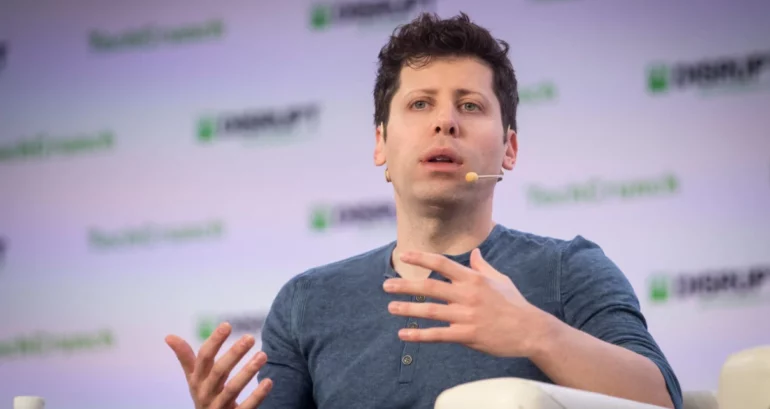Research shows younger employees are much more likely to make use of chatbots at work.
The founder of ChatGPT has said that older workers could be squeezed out of the job market because they will lack the artificial intelligence skills of their junior colleagues.
Sam Altman told students at the University of Cambridge that younger workers are starting to outperform more experienced staff because they are more comfortable using AI tools in their job.
He said several chief executives at large technology companies had observed the trend, predicting that it would mean more young people leading companies and making inventions.
Mr Altman, the chief executive of OpenAI, delivered the Cambridge Union’s Hawking Fellowship Lecture on Wednesday night, in between appearances at the UK’s AI Safety Summit.
Several guests present at the lecture confirmed that he had made the comments, reported in student journal The Tab.
Some 58pc of 16 to 24-year-olds say they have used ChatGPT, according to research from Ofcom this summer, compared to 5pc of those aged over 55 and 17pc of 45 to 54-year-olds.
According to US researcher Pew, younger workers are much more likely to find chatbots helpful at work.
Mr Altman also told students that Rishi Sunak’s summit had generated more agreement than he had expected on the need to develop AI safely. He said that a global regulatory body for AI would be needed in the future.
He said it would be unfeasible to stop AI being developed, but that the advantages of the technology mean we should not want to.
Mr Altman has previously lamented a lack of innovation among young people.
He recently told a podcast: “I was a start-up investor for a long time and it often was the case that the very best startup founders were in their early or mid 20s or late 20s. Now, they skew much older.”
Mr Altman’s speech was disrupted by protesters who hung signs above him saying the technology “threatens democracy and humanity”.
ChatGPT, launched by OpenAI less than a year ago, has driven many of the warnings about rapid improvements in technology. He has said the technology could lead to “lights out for all of us” but could also lead to an age of abundance for humans.
OpenAI, which has received heavy financial backing from Microsoft, aims to create artificial general intelligence, the point at which AI matches human capabilities.
He told his audience in Cambridge that today’s in-vogue technology, known as large language models, was unlikely to be sufficient to reach the goal.


